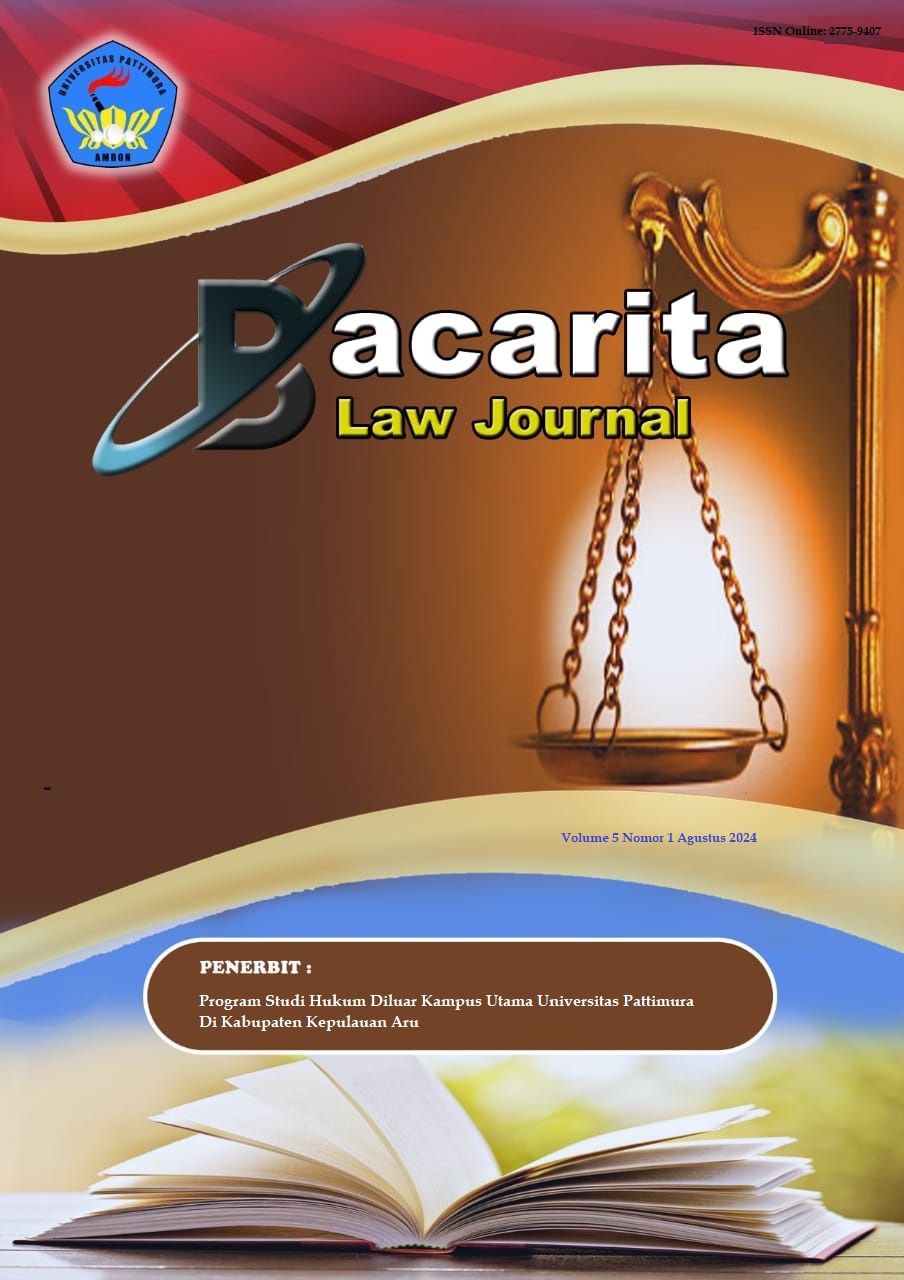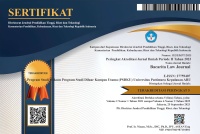Akibat Hukum Putusnya Perkawinan Karena Perceraian
Abstract
Divorce is the end of the relationship between husband and wife which is legal according to law. The termination of the marriage relationship has legal consequences for the position, rights and obligations of husband and wife and children, and is also included in joint assets. Joint property is property obtained by a husband and wife during marriage. This joint property arises from customs which are the provisions governing the husband and wife's property to be made into joint property with the aim of building a household and binding themselves to each other. This research uses normative legal research methods, namely methods that specifically reflect the identity of the legal discipline as a science. Library research takes precedence. The reason for using normative research is that this research refers to legal norms contained in laws and regulations and norms that apply and bind society. The approach used in this research is a statutory approach related to making inheritance certificates. The type of research used in this research is descriptive analytical research, where this research aims to provide a solution to problems that arise precisely and in depth.
Downloads
References
Hilman Hadikusuma, Hukum Perkawinan Indonesia menurut Perundangan, Hukum Adat, Hukum Agama, Bandung: Mandar Maju, 2007.
Rochaeti, Etty, “Analisis Yuridis Tentang Harta Bersama Dalam Perkawinan Menurut Pandangan Hukum Islam Dan Hukum Positif”, Jurnal Wawasan Hukum Vol.28 No.1 (2013): 220.
Copyright (c) 2025 Sovia Febrina Tamaulina Simamora, Ria Juliana Siregar, Samuel Situmorang, Meli Hertati Gultom

This work is licensed under a Creative Commons Attribution-NonCommercial 4.0 International License.
Authors who publish their manuscripts in this Journal agree to the following conditions:
- The copyright in each article belongs to the author, as well as the right to patent.
- Authors are able to enter into separate, additional contractual arrangements for the non-exclusive distribution of the journal's published version of the work (e.g., post it to an institutional repository or publish it in a book), with an acknowledgment of its initial publication in this journal.
- Authors are permitted and encouraged to post their work online (e.g., in institutional repositories or on their website) prior to and during the submission process, as it can lead to productive exchanges, as well as earlier and greater citation of published work.
- Authors have the right to self-archiving of the article (Author Self-Archiving Policy)















